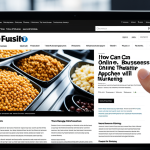Primary obstacles in talent acquisition for UK businesses
Talent acquisition challenges UK companies face are multifaceted and impact hiring outcomes significantly. A major issue is skills shortages, particularly in sectors like technology, healthcare, and engineering. This scarcity means businesses struggle to find candidates who meet the specialized requirements, causing prolonged vacancies and operational delays. Hiring difficulties UK-wide are exacerbated by intense competition for top talent, where employers vie for a limited pool of highly skilled professionals, often leading to bidding wars or candidates holding multiple offers.
Brexit has introduced additional recruitment obstacles UK firms must navigate. Changes in immigration policies have narrowed the candidate pools available to many organizations, reducing access to international talent that once filled crucial roles. This regulatory shift often results in slower hiring processes and increased costs as companies adjust to the evolving labor market.
Also read : Strategies for Effective Leadership in UK Business Management
Understanding these primary obstacles is essential for organizations aiming to improve their recruitment strategies. Addressing skills shortages, adapting to fierce competition, and managing the impact of Brexit are foundational steps toward more effective talent acquisition solutions UK companies can implement.
Primary obstacles in talent acquisition for UK businesses
Talent acquisition challenges UK companies face stem chiefly from skills shortages, impacting sectors such as technology, healthcare, and engineering. These shortages create hiring difficulties UK employers encounter, as the specialized expertise required is scarce, prolonging vacancies and throttling productivity.
Additional reading : How do UK businesses measure the impact of their corporate strategies?
Intense competition for top talent further complicates recruitment obstacles UK organizations must resolve. With many companies chasing the same limited pool of candidates, hiring difficulties UK-wide manifest as bidding wars and candidates juggling multiple job offers, raising the stakes for employers.
Brexit’s profound effect on immigration policies has tightened access to international professionals—a key component of many UK firms’ talent pipelines. This regulatory shift has introduced recruitment obstacles UK businesses must surmount, such as longer hiring timelines and elevated recruitment costs, as organizations adapt to narrower candidate pools.
In sum, the interplay of skills shortages, fierce sector competition, and Brexit’s impact generates the most pressing talent acquisition challenges UK businesses currently face. Addressing these core issues is essential to enhancing recruitment outcomes and filling critical roles efficiently.
Primary obstacles in talent acquisition for UK businesses
Navigating talent acquisition challenges UK companies face involves grappling with persistent skills shortages, especially in sectors like technology, healthcare, and engineering. These shortages create significant hiring difficulties UK employers confront daily, as the scarcity of qualified candidates hinders timely recruitment and operational efficiency.
Adding to recruitment obstacles UK firms experience is fierce competition for limited top talent. Companies often engage in intense bidding wars, increasing salary offers and benefits to secure candidates. This competitive environment exacerbates hiring difficulties UK employers battle, as standout candidates juggle multiple offers.
Furthermore, the impact of Brexit on candidate pools has reshaped recruitment obstacles UK businesses must address. Stricter immigration rules have narrowed access to international talent, reducing the diversity and size of available pools. As a consequence, recruitment obstacles UK organizations face now include longer hiring cycles and greater costs tied to attracting eligible candidates.
Together, these factors highlight the complexity of talent acquisition challenges UK firms encounter. Overcoming skills shortages, managing rivalry for talent, and adapting to Brexit’s influence are vital for improving recruitment outcomes.
Primary obstacles in talent acquisition for UK businesses
The talent acquisition challenges UK firms face are deeply rooted in persistent hiring difficulties UK employers struggle with daily. Central to these challenges are ongoing skills shortages across key industries such as technology, healthcare, and engineering. This scarcity limits the availability of candidates who possess the specialized expertise companies need, resulting in prolonged recruitment cycles and operational inefficiencies.
Another significant obstacle is the intense competition for top talent. Many UK organizations compete within a limited talent pool, often escalating salary offers and benefits to attract sought-after candidates. This competition intensifies hiring difficulties UK companies face, heightening the challenge of securing highly skilled professionals before rivals do.
The impact of Brexit on candidate pools further complicates recruitment obstacles UK businesses encounter. Stricter immigration policies have reduced access to international talent, which traditionally supplemented domestic recruitment efforts. This shift contributes to smaller, less diverse candidate pools and longer hiring timelines, forcing organizations to allocate more resources to attract suitable applicants.
Together, these factors form a complex landscape of recruitment obstacles UK firms must navigate to improve talent acquisition outcomes effectively.
Primary obstacles in talent acquisition for UK businesses
Talent acquisition challenges UK firms face are deeply influenced by ongoing skills shortages across key industries, particularly technology, healthcare, and engineering. These shortages create persistent hiring difficulties UK employers encounter, as the candidate pool lacks professionals with the necessary qualifications and experience. Consequently, prolonged vacancies hinder operational continuity and increase recruitment costs.
Intense competition for top talent further compounds recruitment obstacles UK organizations confront. With multiple companies targeting the same skilled professionals, hiring difficulties UK firms experience include bidding wars and high candidate turnover rates. This rivalry forces employers to enhance compensation packages and expedite recruitment processes to secure the best candidates.
The impact of Brexit on candidate pools is another critical recruitment obstacle UK businesses currently face. Changes in immigration policies have narrowed access to international talent, a vital resource for many firms. This reduction in available candidates causes lengthier hiring timelines and heightens recruitment obstacles UK companies must navigate to fill essential roles efficiently. Together, these issues form a complex challenge that requires strategic talent acquisition approaches to overcome.






